The truth about plastic wastes
“Can you name one of the top 10 most important inventions of the modern era?” questioned Lee Chee Heong in the e-KLESF 2021 webinar which was held via Zoom and Facebook Live on 23 October 2021.
“Plastic is one of the most important inventions. Look around your house, plastics are everywhere,” said Lee.
Lee is an assistant lecturer of UTAR Centre for Foundation Studies of Kampar Campus. In his webinar titled “We Are Ingesting Plastics – A Haunting Reality!”, he addressed the concern about the usage and disposal of plastics that could create problems for humans and the environment.
The objectives of the webinar were to create awareness of the pollution caused by plastics and microplastics in the environment and the ecosystems and to discuss the traces of microplastics in the surroundings, human food chain and the human body. It also aimed to promote the importance of green lifestyle and reduce the use of plastics, especially single-use plastics, besides stimulating youngsters to think of possible solutions for plastics and microplastics pollution.
“Plastic was first invented in 1907 so it has populated our lives for about 70 years. It made the modern world possible. If you check whatever you have, they consist of plastics, even your handphone,” Lee said.
He asked participants to imagine their lives without plastics. “Plastics are everywhere; part of human life that is hard to live without. It has great properties; it is versatile, lightweight, tough, great lifespan, transparent, waterproof and it brings convenience to lives and businesses,” he said. He explained that plastics can be produced in large quantities and used in many areas. He also mentioned that the worldwide demand for plastic has risen from 1.7 million tons in 1950 to about 400 million tons in 2015.
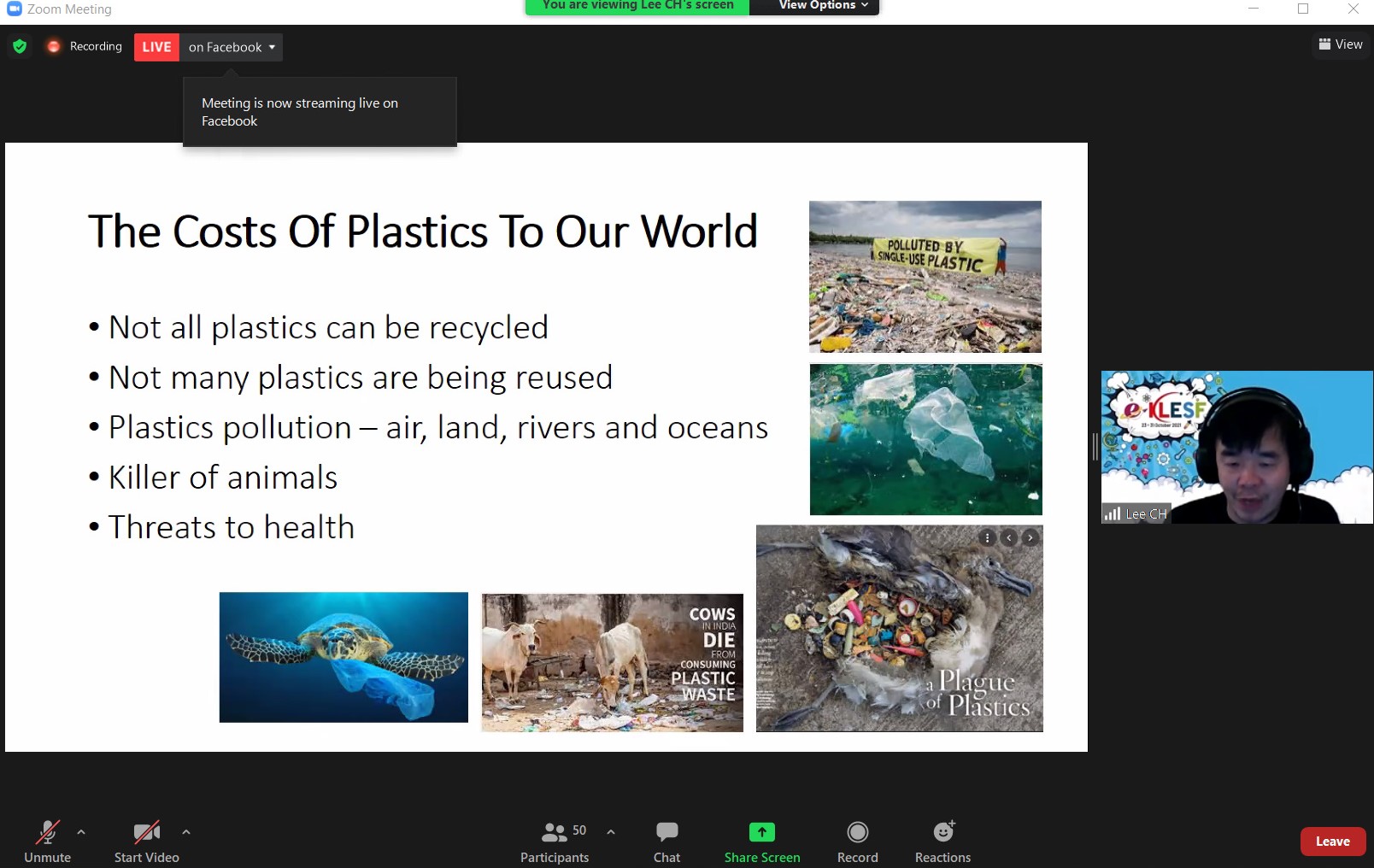 Lee explaining how plastics cause a lot of environmental issues
Lee explaining how plastics cause a lot of environmental issues

Lee sharing the sources of plastics wastes, where most are contributed from packaging
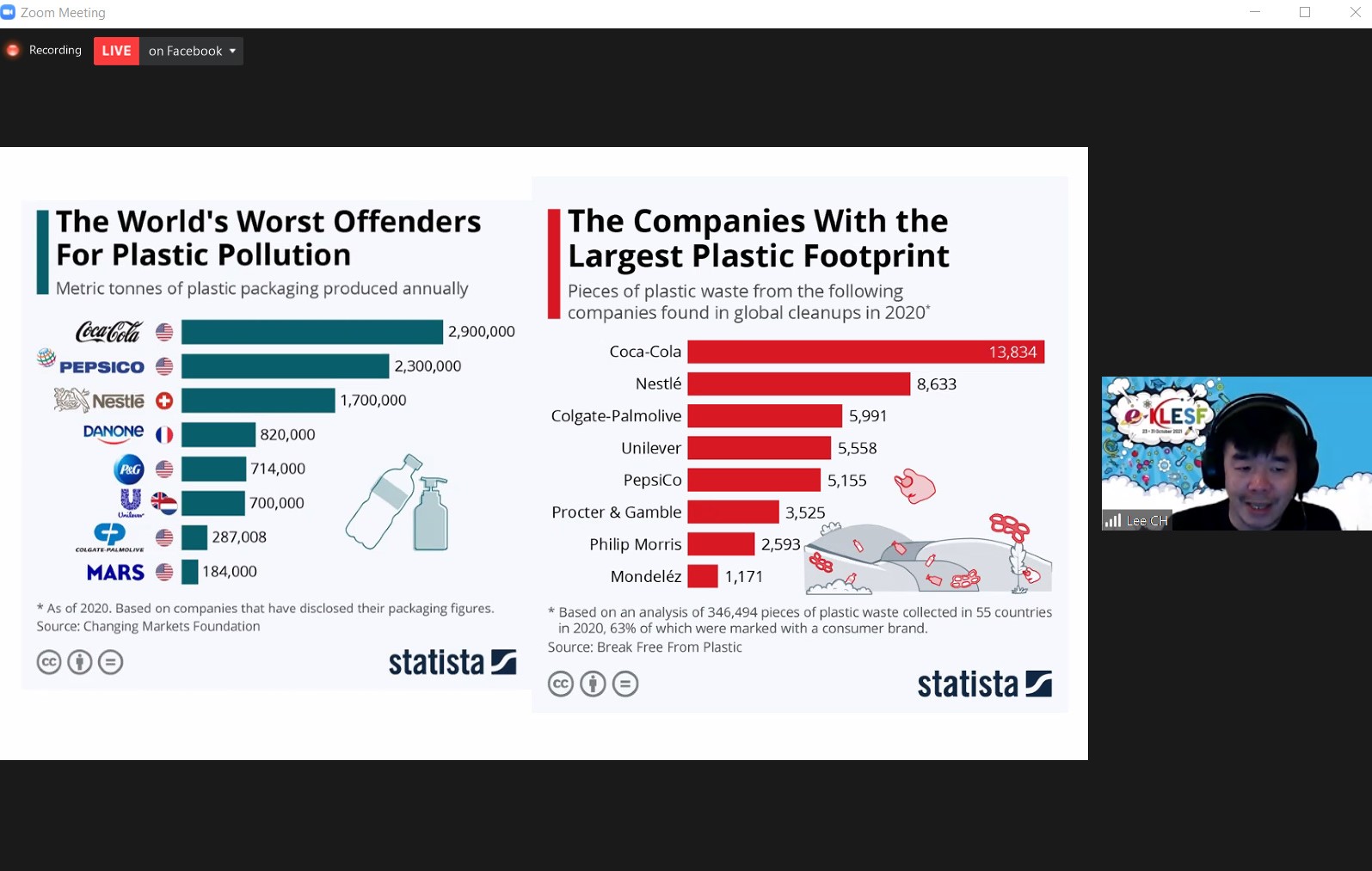
Lee showing the companies with the largest plastic footprint and the world's worst offenders for plastic pollution
Lee shared numerous facts and statistics about plastic pollution. He mentioned that about 18 billion pounds of plastic waste flow into the ocean every year from coastal regions. “That is equivalent to five grocery bags of plastic trash sitting on every foot of coastline around the world,” he said. He mentioned that 80 per cent of plastic litter in the ocean comes from land-based sources; more than 1.15 million tons of plastic enter the ocean every year via rivers globally, and 64 per cent of plastics that enter the ocean ends up on the seafloor.
Lee also talked about the trade flow of plastic waste after China’s plastic import ban and said that Malaysia became the leading new hub for plastic waste after China banned imports of such waste. He also explained that due to the Covid-19 pandemic, there was a tremendous increase in plastic waste.
Lee mentioned that the plastics in the ocean break up into very small particles called "microplastics" which are not only found on land, ocean, animals, air, water and food, but also in humans’ bodies. According to him, some studies revealed that microplastics can negatively impact humans’ health. “Plastic consists of many chemicals. Except for those known chemical compounds, the effects of microplastics in the human body are still largely unknown,” he said.
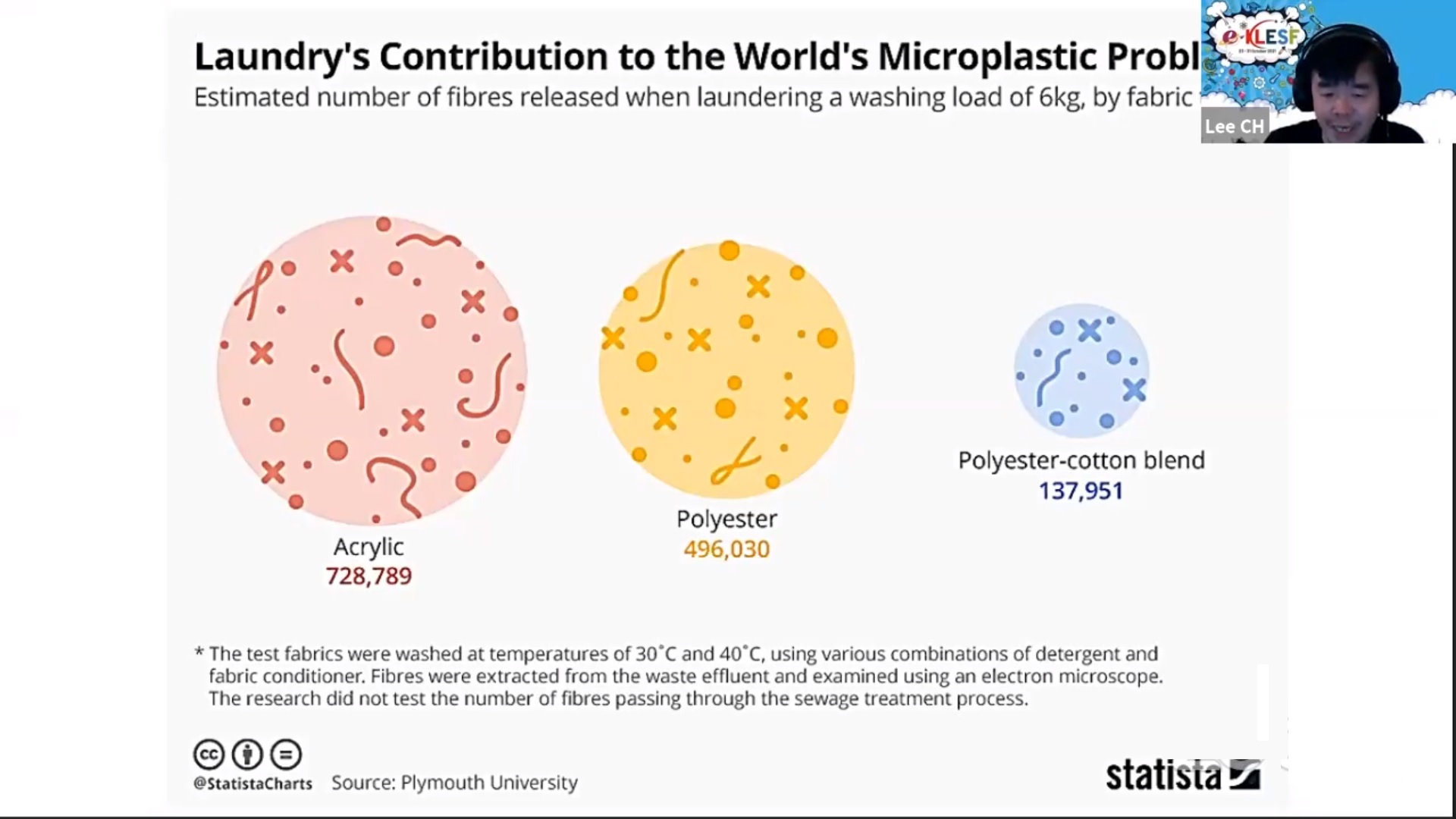 Lee explaining that laundry also contributes to microplastic pollution
Lee explaining that laundry also contributes to microplastic pollution
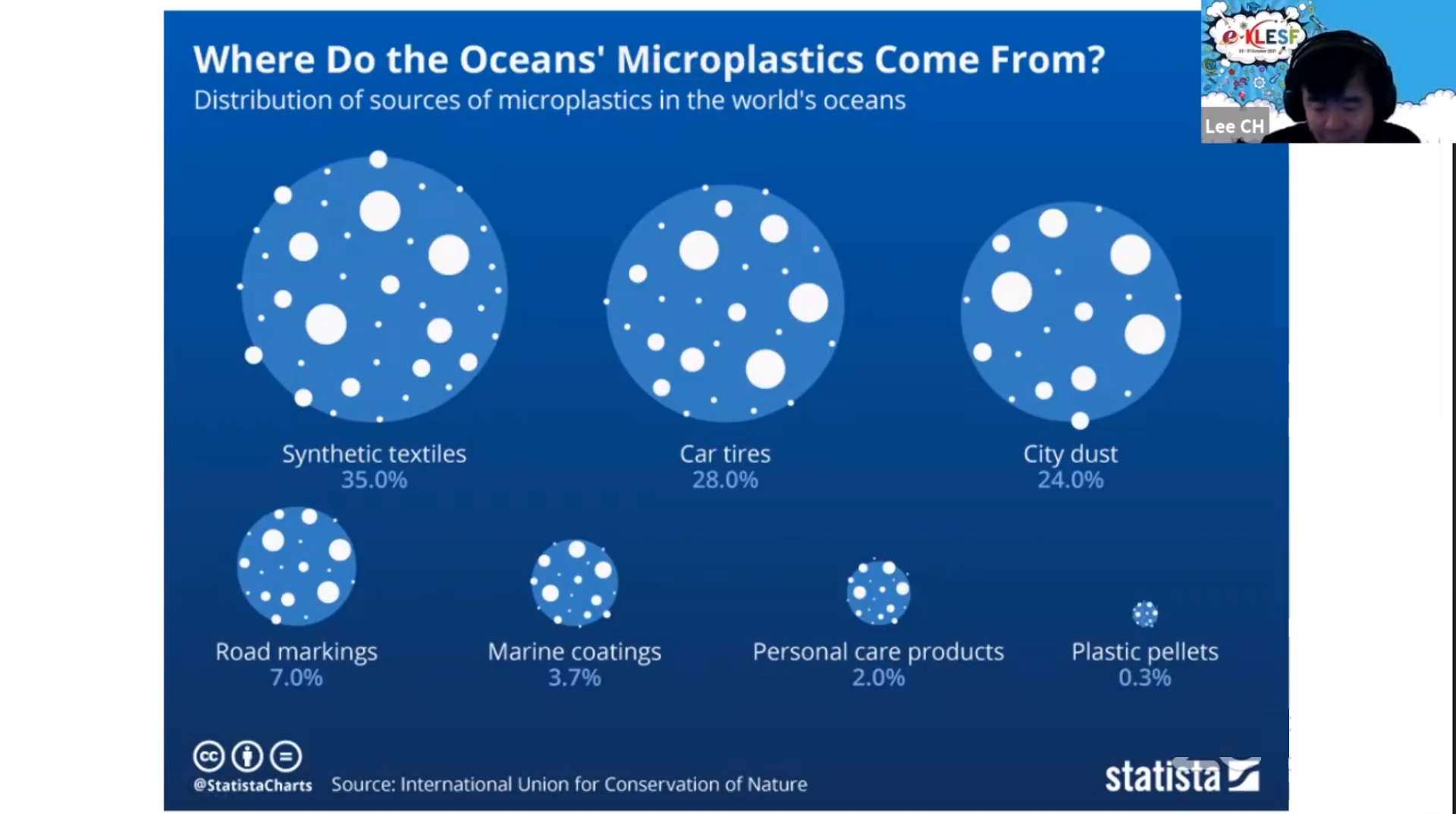
Lee showing the areas that should be looked into to reduce microplastic pollution

Lee explaining that people consume approximately five grams of microplastic which is equivalent to a credit card

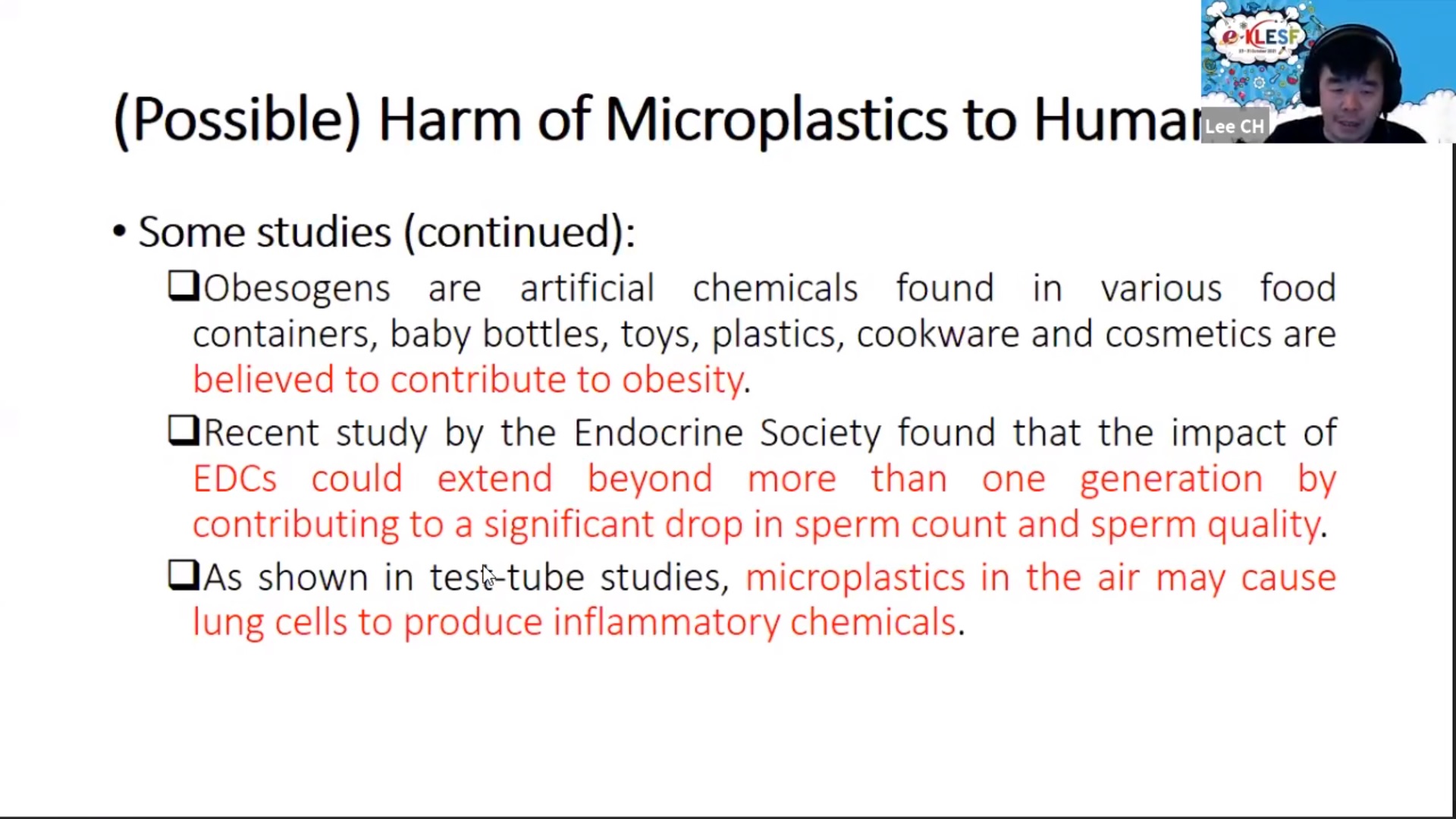
Lee sharing the possible harm of microplastics to human
He also mentioned that the discovery of plastic-eaters would not solve the plastic problem and the 3R was not effective. There were also limited plastic wastes that could be reused or reprocessed. He further talked about alternatives that can reduce the use of plastic, for instance, replacing plastic straws with sugarcane and paper straws as well as trapping and cleaning plastic waste in rivers and the oceans. He also shared some efforts taken by certain companies to tackle plastic wastes.
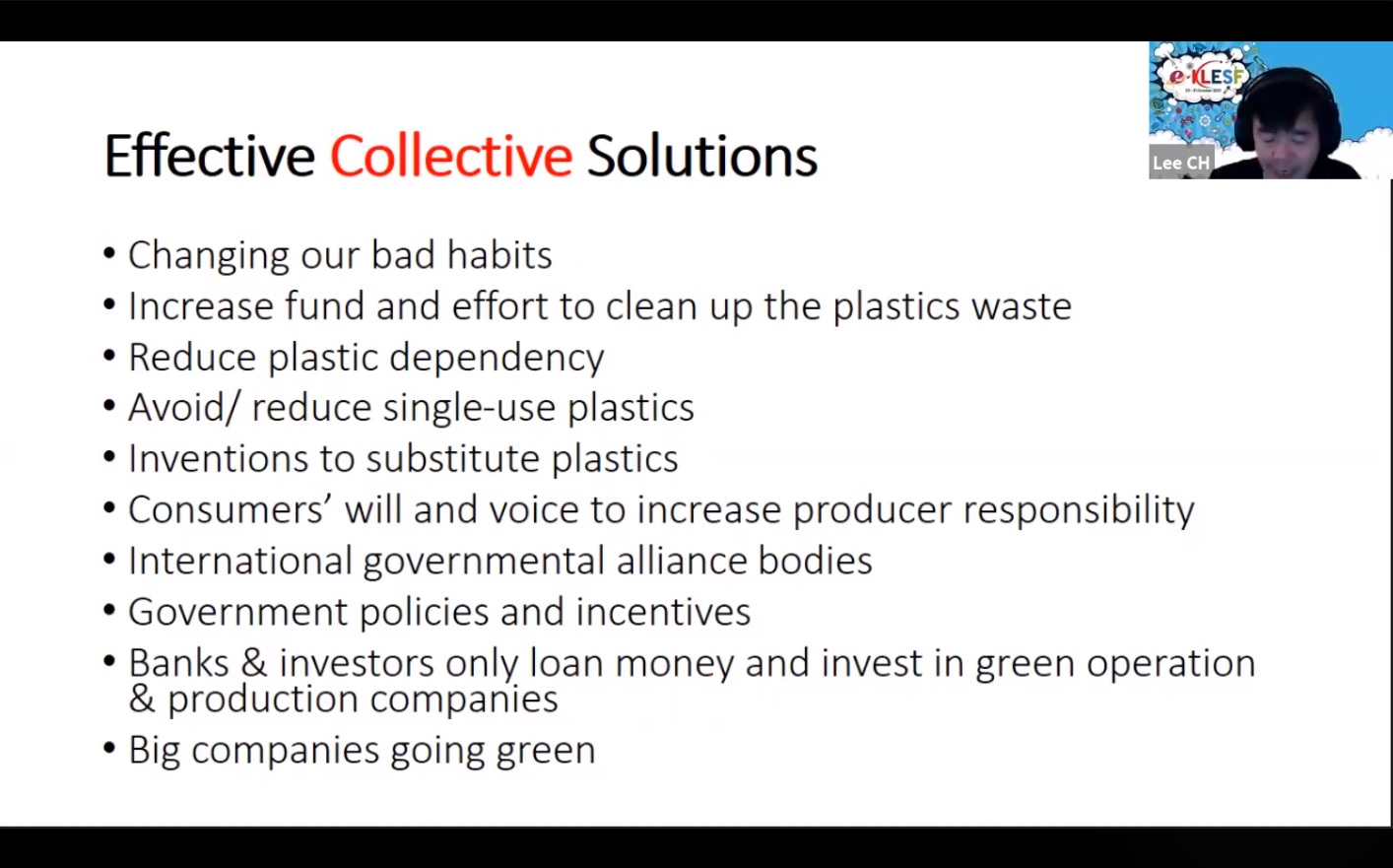
Lee sharing some solutions to reduce plastic waste
“Every single action counts, be it big or small. We have to work hand in hand in all areas. It must be a collective effort and not individual. Let’s do it together. Let’s save the world and ourselves from plastic,” he said.
Click here to view the video.

